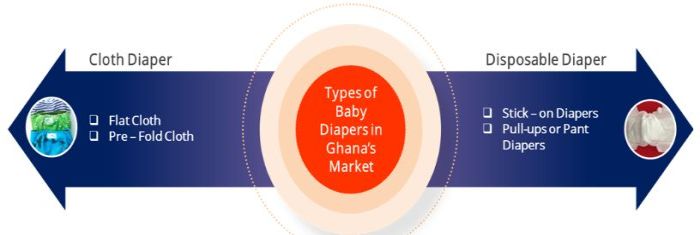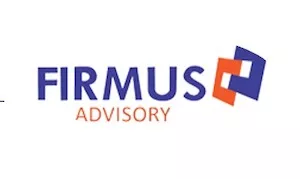- in United States
- within Finance and Banking, Immigration and Tax topic(s)
- with readers working within the Metals & Mining industries
Ghana's Disposable Baby Diaper Market in Focus 2021
Ghana is among one of the top consumers of baby diapers in the West African sub-region, consuming over 500 million units of baby diapers, second to Nigeria who consumed over 2 billion units1 of baby diapers in 2019. The baby diaper market is growing and the proliferation of different brands of baby diapers has created a competitive landscape for both importers and manufacturers. The growing demand has also led to the emergence of a growing domestic production sector further increasing competition in the market and changing the market dynamics: in terms of brands, though there are still more foreign brands in the market, local brands are also gaining a significant share. Equally, patterns of demand are currently flexible with greater shift in demand towards disposable diapers and locally manufactured brands, who are deeply positioned to attract demand from the lower to middle-income end of the market.
Types of Baby Diapers in the Ghanaian Market
The diaper market in Ghana is showing growth signs and is broadly classified into cloth and disposable diapers based on product type, with greater demand for disposable diapers.

Figure 1: Types of baby diapers in the Ghanaian Market (Source: Market Survey. 2021)
Share of local brands to foreign brands in the market
The market is flooded with different brands of diapers, both foreign and local, each gaining a fair share of the market due to their unique product characteristics and niche marketing. Currently, of the total number of brands in the market, about 74% of them are foreign brands, with just about 26% of brands being local.

Figure 2: Percent of Local and Foreign Baby Diaper Brands in the Market (Source: Firmus Market Survey, 2021)
Read Here Also : Increase in Supply, Marginal Decline in Demand [An Occupancy Analysis of Commercial Real Estate in Accra]
Foreign diaper brands have been the order of the day in the Ghanaian diaper market for a very long time: they have a varied range of product categories and are perceived to be of high quality. Domestic production of diapers on the other hand is fairly new in Ghana with the first production starting around 2016. However, in as much as foreign brands dominate the Ghanian market, demand for local brands has been on the rise and it's set to take over demand from foreign brands largely due to price advantages as well as the growing visibility and popularity of the local brands.
Further, import of baby diaper products have been on decline in the past 5 years, around the same time local manufacturing began to take root. Specifically in 2019, imports decreased by as high as 53% following the establishment of the Sunda Ghana baby diaper factory in 2018 – Sunda Ghana produces the fastest moving baby diaper brand in Ghana, the Softcare brand. Imports further declined by 25% in 2020.

Figure 3: Historical Imports of Baby Diaper Products in Ghana (Source: MOTI, Ghana)
To view the article in full click here
The content of this article is intended to provide a general guide to the subject matter. Specialist advice should be sought about your specific circumstances.
[View Source]


